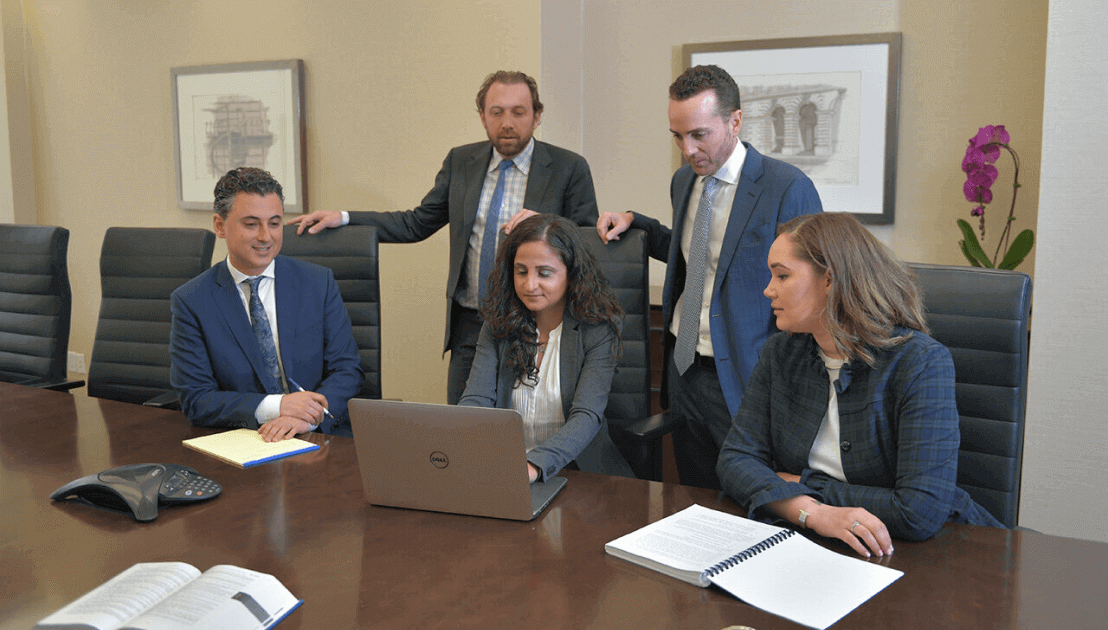Nov 27 2023 |
Pedestrian Accidents and Slippery Sidewalks: Who's Liable?
Ontario is no stranger to slippery sidewalks. Every winter, as snow and ice accumulate across Ontario, thousands of people end up injured because of slips and falls on icy sidewalks. If you slip on a sidewalk in Ontario can you file a personal injury claim to pursue compensation for your injuries? If so, who is liable?
The answer is, of course, not so straightforward. In this article, we will give an overview of Ontario slip and fall accidents on slippery sidewalks and discuss who is responsible for injuries that occur. However, every case is unique.
If you have been injured from a fall on a slippery sidewalk, you should contact a slip and fall lawyer as soon as possible to review your case. Your lawyer will assess the details of your case to help you understand if you can make a claim and how to prove that the third party was liable for the accident.
Who is Responsible for Clearing Snow and Ice From Sidewalks in Ontario?
Many cities in Ontario have bylaws that stipulate who is responsible for clearing snow and ice from sidewalks. Each municipality is different, but often the bylaw requires residents to clear snow and ice from walkways adjacent to their property to some extent.
In Toronto, for example, property owners are responsible for clearing snow and ice from sidewalks in front of and adjacent to their homes within 12 hours of the end of snowfall, when snowfall is 2 cm or less. In cases where snowfall is greater than 2 cm, city crews will clear all sidewalks.
Who is Liable for Slip and Fall Accidents on Sidewalks in Ontario?
So, if a bylaw stipulates that property owners are responsible for clearing snow and ice from the sidewalk, are they liable for slips that occur on the sidewalk?
Usually no. In most cases, per the Municipal Act, the municipality has an overarching duty to ensure sidewalks are clear of hazards. However, municipalities are only liable for slips and falls caused by snow and ice in cases of “gross negligence” from the municipality. The Municipal Act does not provide any examples of gross negligence, but some possible cases might be if:
- Ice is allowed to accumulate for several days
- The municipality fails to react appropriately to freezing temperatures after rainfall
- The municipality lacks a policy for sidewalk maintenance
Unfortunately, in most slip-and-fall claims against municipalities, the victim does not receive any payout for their losses. In 2017, there were 147 claims against the city of Toronto for icy walkways, and only two were paid out. This is why you should consult with a slip-and-fall lawyer as soon as possible after your accident. Your lawyer will help you understand your options and drastically increase your success in filing a successful claim.
When are Property Owners Liable for Slip and Fall Accidents on Sidewalks?
On public sidewalks, the municipality often has a duty to provide safe conditions for pedestrians and other users, but there are cases where property owners or occupiers can be held responsible for slip-and-fall accidents on sidewalks.
If the sidewalk, ramp, or walkway is on private property–residential or commercial–then that property owner is responsible for clearing snow and ice, and for maintaining a safe space for all users. Failing to do so can be considered negligence and the property owner can be liable for slip and fall accidents that occur. A property owner might also be held liable in some unique situations, like if the sidewalk is slippery because of water running from the property, for example.
Limitation Periods for Slip and Fall Accidents
It is important to seek prompt legal advice following a slip and fall accident. Sometimes restraints can affect the viability of your claim. One of these time restraints is the limitation period.
As with any personal injury claim, a claim for a slip and fall accident on a slippery sidewalk is subject to Ontario’s statute of limitations. In Ontario, with a few exceptions, personal injury claims must be filed within two years of the date of the accidents.
Notice Periods
Notice periods pose another possible limitation for your personal injury claim. In Ontario, if you are injured in a slip-and-fall accident on municipality owned or managed property, you must submit a written notice of the injury and claim within 10 days. Failing to do so can impede your ability to pursue your claim.
Similarly, for slip-and-fall accidents on private property, you must notify the property owner of the claim within 60 days of the accident. Again, failing to do so can impact your ability to pursue your personal injury claim.
What Damages Can Be Compensated After a Slip and Fall Accident?
The amount of compensation you can seek through a slip-and-fall claim will depend on your specific case. Your lawyer will compile a record of your damages to provide evidence to support an amount for your claim. You might be entitled to compensation for damages like:
- Past and future medical bills
- Lost income and lost earning capacity
- Pain and suffering
- Emotional distress
- Care expenses
The seriousness of your injuries will largely dictate the amount of compensation you can pursue. Be sure to keep a detailed record of any medical treatment or rehabilitation costs.
Zayouna Law: Your Toronto Slip and Fall Lawyer
If you are looking for legal advice after a slip and fall accident in Toronto, the lawyers at Zayouna Law Firm are here to help. We explain your rights after your accident and assess your case to explore your options for seeking compensation through a personal injury claim or insurance.
Contact us to book a free consultation with one of our lawyers.











Leave A Reply